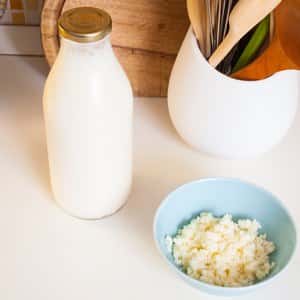
A recent health buzzword will probably get even more attention in the coming year. Expect to hear more about probiotics.
Why? Probiotic foods and supplements offer the possibility for altering a damaged or weakened microbiome. Here are a few studies that hint at the potential.
Probiotics Reduce Inflammation:
A meta-analysis involving 20 randomized controlled trials found that probiotics reduce a key marker of inflammation known as C-reactive protein (CRP). Elevated levels of CRP are associated with a greater risk for metabolic syndrome, type 2 diabetes and cardiovascular disease. Consequently, being able to reduce this market has broad implications for better health.
When people take probiotic bacteria such as Lactobacillus and Bifidobacteria, whether in pills or as yogurt, this inflammatory compound drops. This reduction may reflect a healthier microbiome within the digestive tract.
Probiotics may also improve the barrier function of the intestinal lining, thereby enhancing the immune system and reducing inflammation.
Nutrients, online, Jan. 3, 2017
Probiotics for Better Digestion:
Recent research reinforces the value of probiotic supplementation for the digestive tract. A review of studies of people with functional bowel disorders such as irritable bowel syndrome found that such supplements can be helpful. That finding should be good news for people who have struggled for years with discomfort despite being told by their physicians that the problems are all in their heads (Journal of Neurogastroenterology and Motility, Jan. 30, 2017).
Other recent studies show that the bacteria residing in our digestive tract are critical in determining whether and how much medications damage the intestinal lining (Digestion, Jan. 5, 2017). Nonsteroidal anti-inflammatory drugs are often the culprits that injure the intestinal lining, but aspirin can also trigger damage. A double-blind randomized controlled trial shows that consuming yogurt containing probiotic Lactobacillus gasseri can help protect the small intestine from aspirin-related damage such as ulcers and lesions (Digestion, Jan. 5, 2017).

